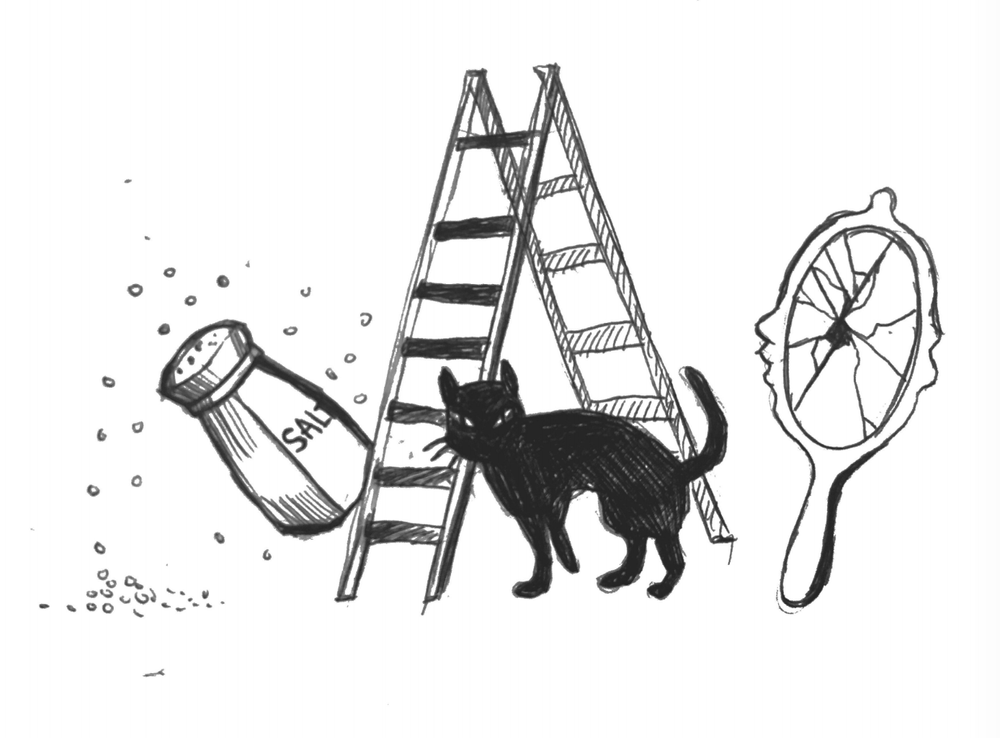Debunking Common Superstitions
Superstitions have been a part of human culture for centuries, often rooted in ancient beliefs and folklore. While many people may not take them seriously, superstitions continue to influence behaviors and decisions in surprising ways. It's time to shed light on some of these common superstitions and debunk the myths surrounding them.
Walking Under a Ladder
One of the most enduring superstitions is that walking under a ladder brings bad luck. This belief dates back to ancient Egypt, where a ladder leaning against a wall formed a triangle, symbolizing the sacred trinity. Passing through the triangle was considered blasphemous and could bring misfortune. In reality, the danger of walking under a ladder is purely practical—there’s a risk of something falling on you, or you could knock over the ladder and cause an accident.
Breaking a Mirror
The superstition that breaking a mirror results in seven years of bad luck stems from the ancient belief that mirrors were not just reflections but held a piece of the soul. Damaging a mirror was thought to harm the soul, resulting in misfortune. In truth, the worst consequence of breaking a mirror is the inconvenience and potential injury from the shattered glass. Modern psychology suggests that this superstition persists because humans naturally seek patterns and explanations for negative events.
Black Cats Crossing Your Path
Black cats have been associated with bad luck, particularly in Western cultures, where they were once thought to be witches' familiars or shape-shifting witches themselves. This superstition led to widespread fear and mistreatment of black cats. However, in many cultures, black cats are considered symbols of good luck and protection. The reality is that a cat’s color has no bearing on luck, and black cats deserve the same love and care as any other pet.
Opening an Umbrella Indoors
Opening an umbrella indoors is another action said to bring bad luck. This belief likely originated in Victorian England when umbrellas with stiff, spring-loaded mechanisms could cause injuries or damage if opened indoors. The bad luck associated with it was probably a way to prevent accidents. Today, opening an umbrella indoors is perfectly safe, though it might still be seen as unnecessary and awkward in confined spaces.
Spilling Salt
The superstition that spilling salt brings bad luck and that throwing a pinch over your left shoulder can counteract this stems from ancient beliefs. Salt was once a valuable commodity, and spilling it was seen as wasteful and unlucky. The idea of throwing it over the left shoulder to blind the devil lurking there is an attempt to reverse the bad luck. In modern times, spilling salt is simply a minor inconvenience and doesn’t have any mystical implications.
Knocking on Wood
Knocking on wood to ward off bad luck is a widely practiced superstition. It dates back to ancient pagan cultures where trees, particularly oak, were believed to house protective spirits. Knocking on the tree was thought to invoke these spirits for protection. Today, this ritual persists as a comforting habit rather than a genuinely believed protective measure.
Conclusion
Superstitions are fascinating remnants of our cultural and psychological history, reflecting humanity's need to understand and control the world around us. While they may add a touch of mystery and tradition to our lives, it's important to recognize them for what they are—myths without scientific basis. By debunking these common superstitions, we can make more informed decisions and focus on rational explanations for the events in our lives. So, the next time you break a mirror or see a black cat cross your path, remember that your luck is determined by your actions and attitude, not ancient beliefs.




